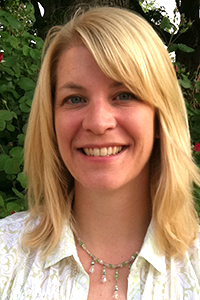
About
Sarah is the Executive Director of Tiny Earth at the University of Wisconsin-Madison, overseeing the international network of 10,000 students at ~270 institutions. She previously led two services in DoIT Academic Technology at the University of Wisconsin-Madison that focused on transforming UW courses to active and blended learning. These services, Faculty Engagement and Strategic Learning Technology Consulting, account for 60% of the faculty development available for teaching and learning at UW-Madison, and 90% of the services for teaching with technology. She also led REACH, a Provost-level initiative to redesign UW-Madison’s highest-enrollment courses to be more active and inclusive, coordinating curricular transformation in 10 departments, with 80+ faculty and staff, and 450+ graduate teaching assistants who teach 10,000+ enrolled students per year, primarily in STEM. Prior to that, she built and led the first four cohorts of Madison Teaching and Learning Excellence (MTLE), an intensive year-long program for UW’s early-career faculty. The program enrolled 52 faculty who taught 7,000+ undergraduates in 106 courses during that time. She has also taught multiple graduate-level courses about scientific teaching and mentoring, as well as undergraduate science courses. She has co-authored four publications in Science magazine, in addition to other education journals. She founded the Scientific Teaching Book Series and is a co-author of the books "Scientific Teaching" and "Entering Mentoring".
Education
M.S., Plant Pathology, University of Wisconsin–Madison
Research Description
My professional research focuses on STEM education, with an emphasis on active and inclusive learning, institutional transformation at scale, and faculty development in higher education. I was trained as a biologist at UW-Madison. During my graduate work in plant pathology, I investigated the environmental impact of genetically modified organisms (GMOs) by analyzing the microbial communities affiliated with plant roots. As an undergraduate majoring in botany, I researched plant ecology and evolution in areas ranging from the top of tropical Venezuelan tepuis (plateaus) to the bottom of Northern Wisconsin lakes.
Honors
- National Academies Education Mentor in the Life Sciences
- UW-Madison Teaching Academy Distinguished Teaching Award
